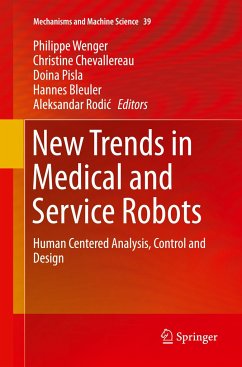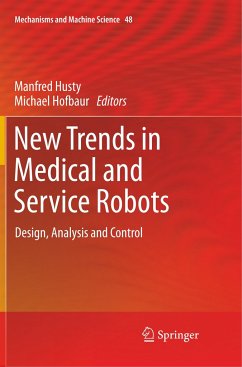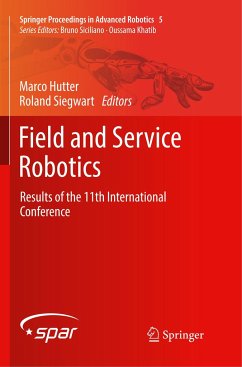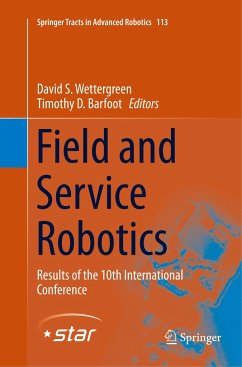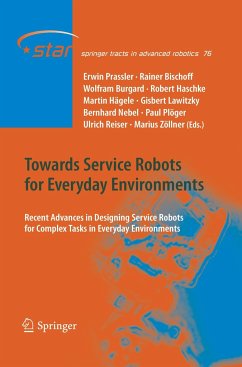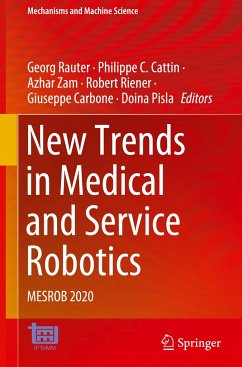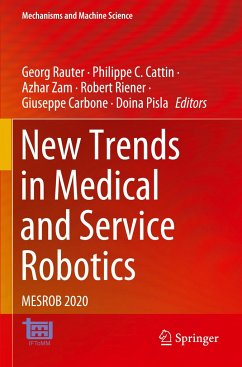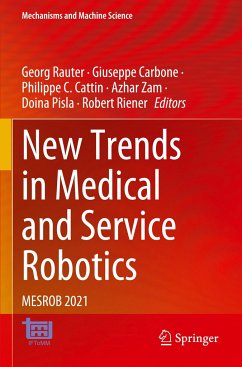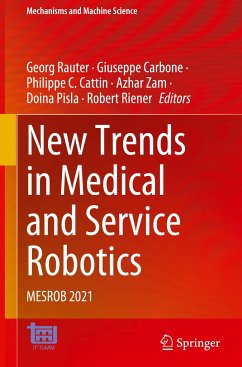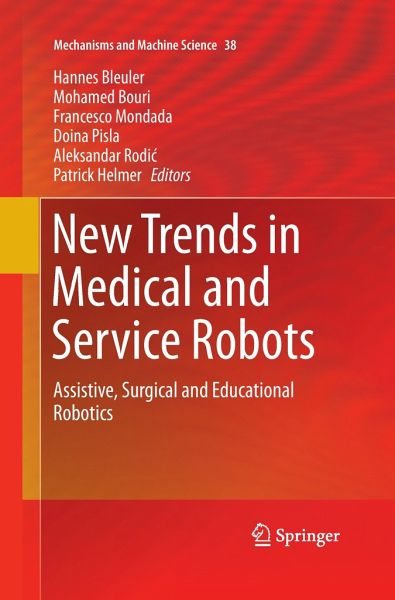
New Trends in Medical and Service Robots
Assistive, Surgical and Educational Robotics
Herausgegeben: Bleuler, Hannes; Bouri, Mohamed; Mondada, Francesco; Pisla, Doina; Rodic, Aleksandar; Helmer, Patrick
Versandkostenfrei!
Versandfertig in 6-10 Tagen
76,99 €
inkl. MwSt.

PAYBACK Punkte
38 °P sammeln!
Medical and Service Robotics integrate the most recent achievements in mechanics, mechatronics, computer science, haptic and teleoperation devices together with adaptive control algorithms.The book includes topics such as surgery robotics, assist devices, rehabilitation technology, surgical instrumentation and Brain-Machine Interface (BMI) as examples for medical robotics. Autonomous cleaning, tending, logistics, surveying and rescue robots, and elderly and healthcare robots are typical examples of topics from service robotics.This is the Proceedings of the Third International Workshop on Medi...
Medical and Service Robotics integrate the most recent achievements in mechanics, mechatronics, computer science, haptic and teleoperation devices together with adaptive control algorithms.
The book includes topics such as surgery robotics, assist devices, rehabilitation technology, surgical instrumentation and Brain-Machine Interface (BMI) as examples for medical robotics. Autonomous cleaning, tending, logistics, surveying and rescue robots, and elderly and healthcare robots are typical examples of topics from service robotics.
This is the Proceedings of the Third International Workshop on Medical and Service Robots, held in Lausanne, Switzerland in 2014. It presents an overview of current research directions and fields of interest. It is divided into three sections, namely 1) assistive and rehabilitation devices; 2) surgical robotics; and 3) educational and service robotics. Most contributions are strongly anchored on collaborations between technical and medical actors, engineers, surgeons and clinicians. Biomedical robotics and the rapidly growing service automation fields have clearly overtaken the "classical" industrial robotics and automatic control centered activity familiar to the older generation of roboticists.
The book includes topics such as surgery robotics, assist devices, rehabilitation technology, surgical instrumentation and Brain-Machine Interface (BMI) as examples for medical robotics. Autonomous cleaning, tending, logistics, surveying and rescue robots, and elderly and healthcare robots are typical examples of topics from service robotics.
This is the Proceedings of the Third International Workshop on Medical and Service Robots, held in Lausanne, Switzerland in 2014. It presents an overview of current research directions and fields of interest. It is divided into three sections, namely 1) assistive and rehabilitation devices; 2) surgical robotics; and 3) educational and service robotics. Most contributions are strongly anchored on collaborations between technical and medical actors, engineers, surgeons and clinicians. Biomedical robotics and the rapidly growing service automation fields have clearly overtaken the "classical" industrial robotics and automatic control centered activity familiar to the older generation of roboticists.



